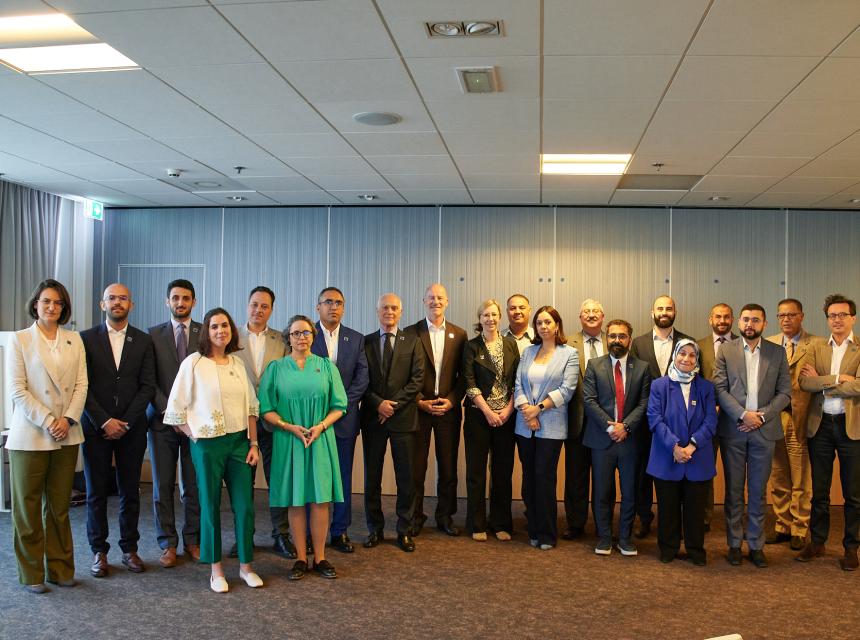T-MED Platform, EDU-HUB, CBAM Help Desk and regional finance take centre stage at MED-GEM’s 4th Industry Advisory Board
Rotterdam, 26 May 2025 - The MED-GEM Network convened its fourth Industry Advisory Board (IAB) in Rotterdam to shape the future of clean energy cooperation across the Mediterranean. Hosted just steps from Europe’s largest port, the meeting brought together public and private actors from across the Southern Neighbourhood to align strategies, investment priorities, and regulatory innovations in support of the region’s green transition.
A Renewed Regional Vision
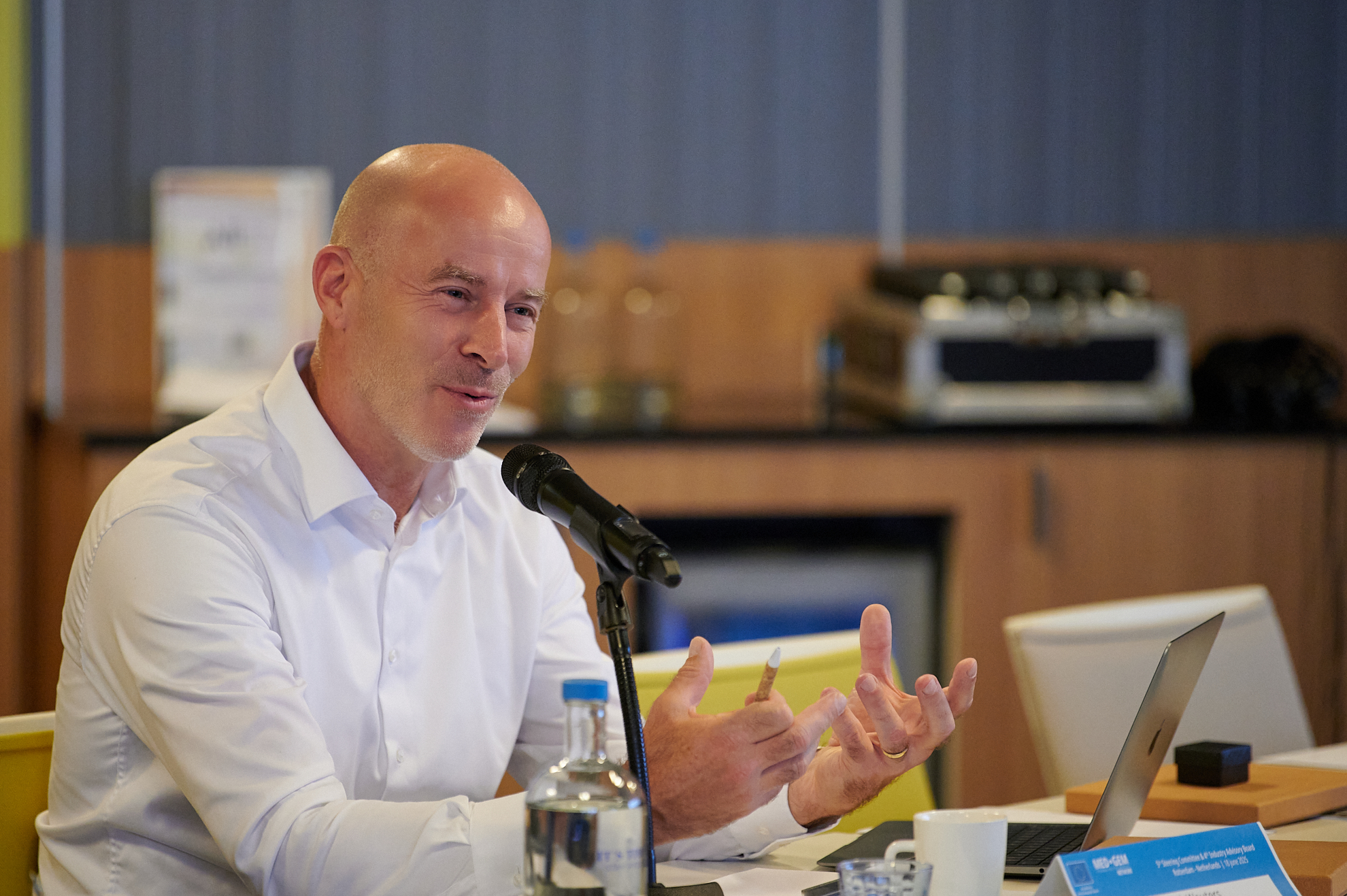
Opening the session, Frank Wouters, MED-GEM’s director, highlighted the urgency of transitioning from policy dialogue to project acceleration. “We’re entering the operational phase. Investment must now follow ambition.”
This shift was echoed by Milou Beerepoot from the European Commission’s new DG MENA, who introduced the forthcoming New Pact for the Mediterranean, expected in September 2025. She reaffirmed that energy will be one of its central pillars and that DG MENA is ready to elevate regional partnerships, including with the Gulf countries.
The T-MED Platform: EU’s Investment Catalyst
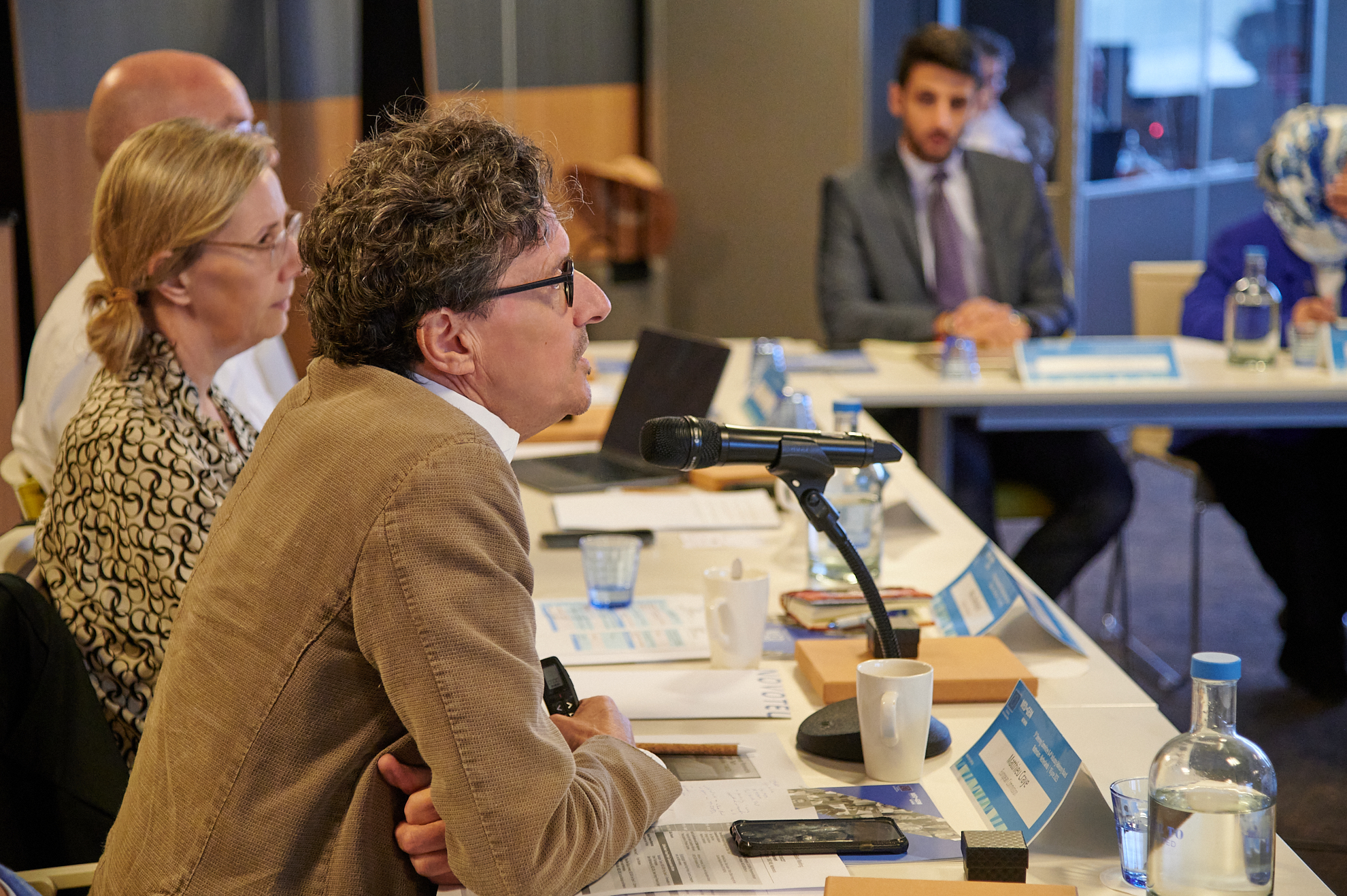
Matthieu Craye of DG ENER presented the soon-to-be-launched T-MED Platform, designed to mobilise between €8 and €10 billion in investments in renewable energy, green hydrogen, and clean technologies.
The platform will operate as a regional investment coordination mechanism, supporting project pipelines across five strategic axes:
- Integration of renewable energy into power systems
- Development of green hydrogen and midstream infrastructure
- Manufacturing of clean tech equipment
- Skills development for energy and hydrogen sectors
- Support to regulatory and policy reform
Calls for expression of interest are planned for Autumn 2025, with a first operational roundtable expected by year-end.
Regulatory Support and the Help Desk
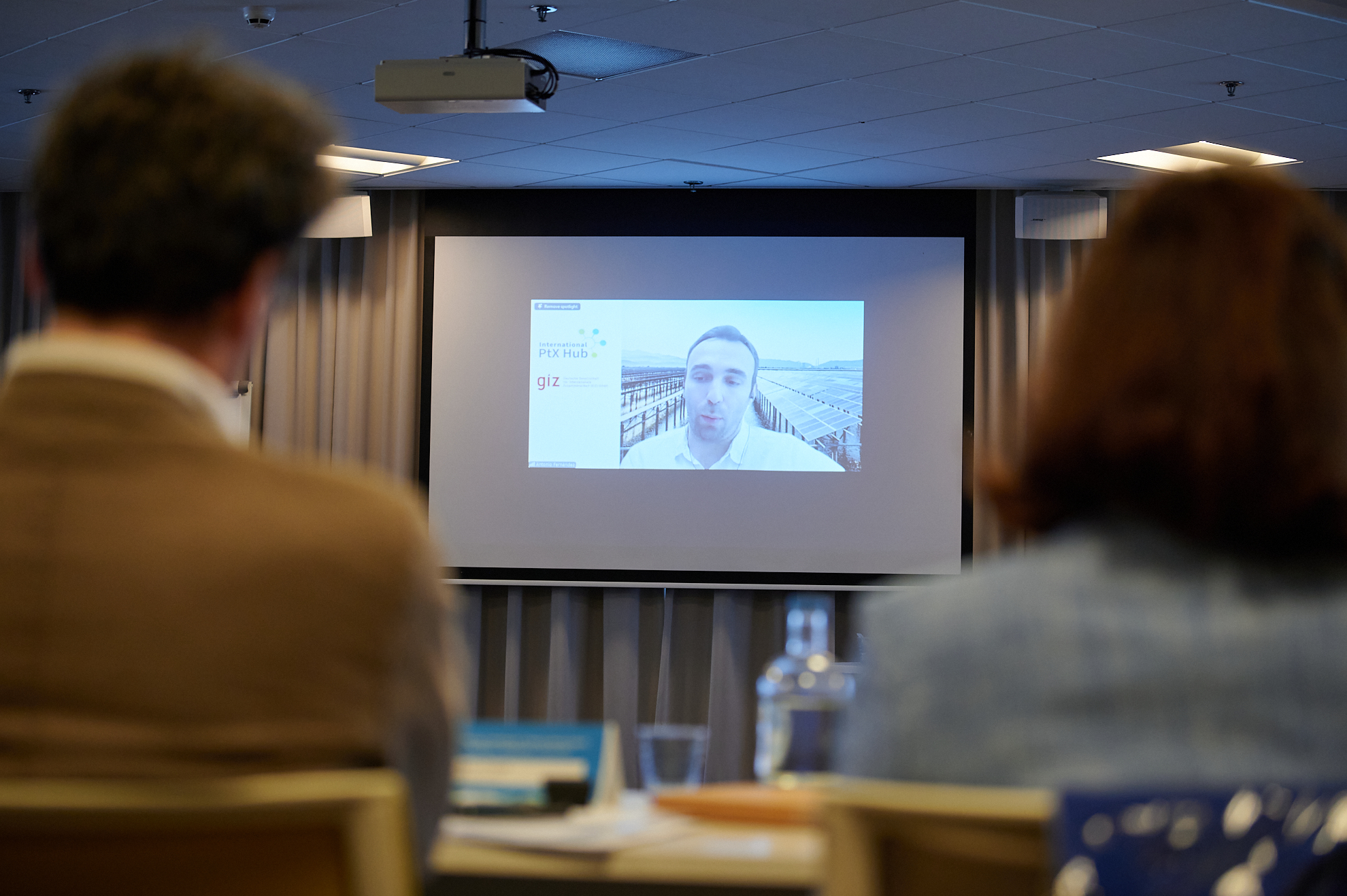
Antonio A. Fernández, EU Policy and Regulatory Advisor reported on the MED-GEM Help Desk, which received 33 technical queries in just three months—mostly on CBAM and hydrogen certification. Identified needs include capacity-building for local verifiers, clarification on GHG methodology, and access to simplified guidance for project developers.
Financing the Transition: Findings and Prototypes
Dr Mustapha Taoumi, key expert of MED-GEM Network and Samir Belhandoria presented the outcomes of the regional finance scoping study, revealing a deep gap between renewable energy potential and available investment.
Two high-potential prototype projects were shared:
- Scatec (Egypt): a retrofitted ammonia facility backed by concessional finance and a public off-taker
- TotalEren (Morocco): a 200,000-ton green ammonia project using mutualized infrastructure and private equity
The experts proposed launching a regional blended finance framework, strengthening local banks, and creating a toolkit of standardized project documentation to support developers and financiers.
MEDGEM-EDUHUB.EU : The Euro-Mediterranean Hydrogen E-Learning Platform
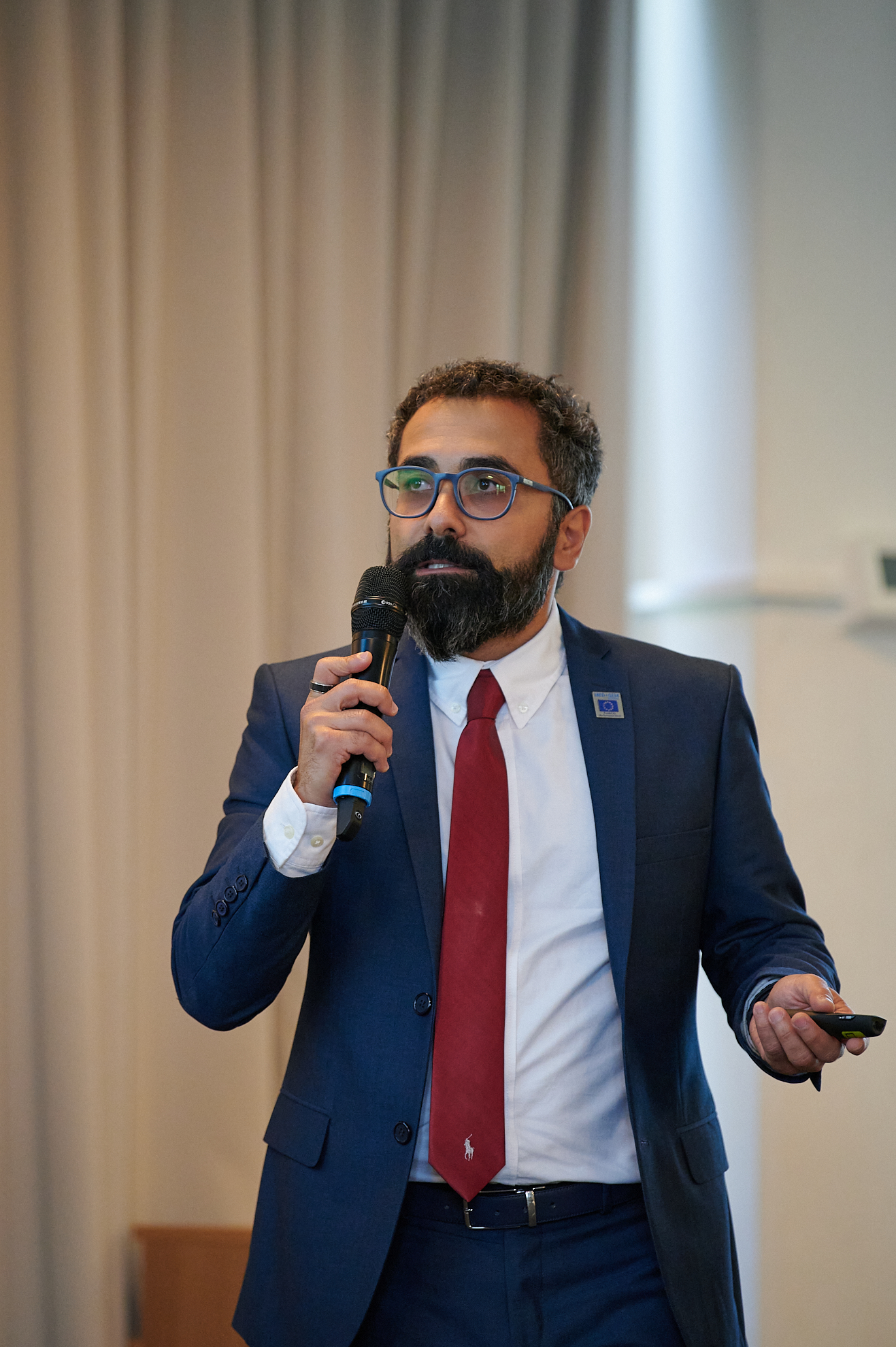
The most concrete innovation of the day was the official launch of EDU Hub — a curated, modular e-learning platform aggregating hydrogen and clean tech training courses for students, engineers, policymakers, and industry alike.
Presented by Raya Verniers and Toufic Rizkallah, https://medgem-eduhub.eu already hosts:
- +60 curated courses (90% free)
- +20 partner institutions (EU-funded and regional providers)
- Filtering by level, format, topic and certification availability
🗣 Raya Verniers: “EDU Hub is not just a website — it’s a public good. An accelerator. It gives governments data, gives industry a pipeline of skilled workers, and gives learners certified, accessible training.”
Planned expansions include localisation, on-demand national modules, and in-person training-of-trainers (ToT) formats starting in 2026.
🔗 Access EDU Hub : https://medgem-eduhub.eu/en/
What’s Next: IAB Priorities and Recommendations
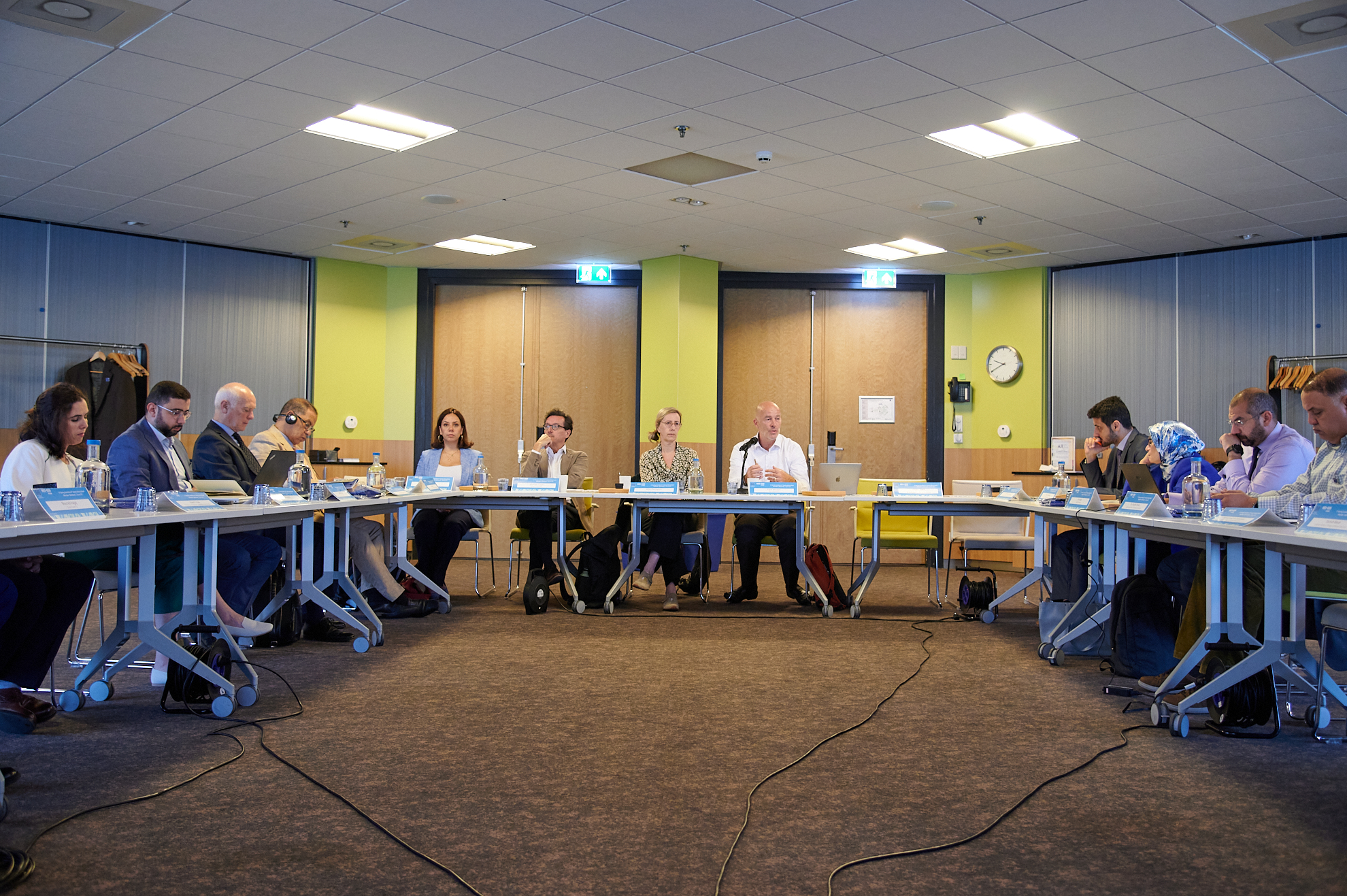
The closing “What’s Next” session, moderated by Frank Wouters, gathered country-specific feedback on future priorities. The five main areas of action identified by participants include:
- Bankability Framework: De-risking instruments, shared infrastructure, visibility of project pipelines
- Education & Awareness: Urgent need for workshops in Libya, Jordan, Tunisia and Morocco targeting banks, universities and ministries
- Regulatory Reform: Calls to replicate Jordan’s successful legislative overhaul (PPA access, transmission, hydrogen-ready gas law)
- Clean Tech Value Chains: Demand for localisation of manufacturing, especially in strategic sectors
- Industrial Use vs Export: Strong interest in producing green steel, fertilizers, and hydrogen-based fuels domestically
A Shared Commitment
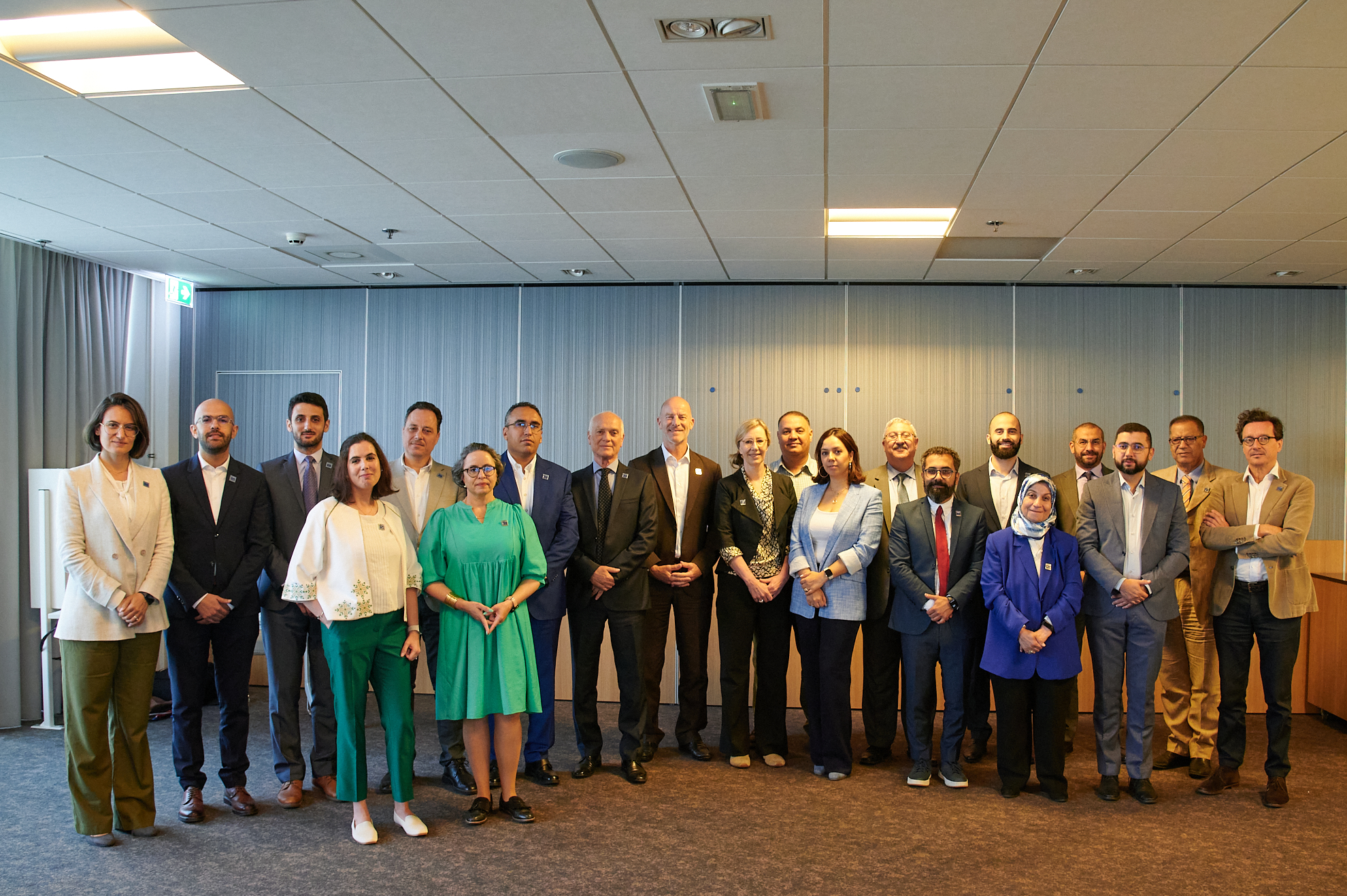
The IAB meeting concluded with a clear message: the Mediterranean energy transition requires strategic coherence, investment mobilisation, and deep cooperation. The MED-GEM Network will now integrate this feedback into its ongoing dialogue with the European Commission and the operationalization of the T-MED Platform.
🗣 Frank Wouters:
“We are not just building pipelines or policy frameworks. We are building trust, capacity, and a shared market of solutions.”

